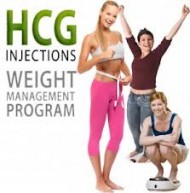What is Menopause?
Menopause is the time in a woman’s life when her menstrual periods permanently cease for a minimum of 12 consecutive months. As a woman’s ovaries no longer produce an egg every month and her hormonal production declines, her menstrual periods stop. This is sometimes referred to as the ‘change of life.’
| What are the common symptoms of Menopause? | ||
|
|
|
Is having a hysterectomy the best Menopause treatment? Or is it a Menopause treatment at all?
Surgical Menopause occurs when a woman undergoes a complete hysterectomy (surgical removal of the uterus and ovaries). All too often physicians view this as the only option for Menopause treatment. Unlike natural Menopause, surgically induced Menopause causes an immediate decline in progesterone, estrogen, and testosterone production, rather than the natural gradual decline that occurs in these hormones over the years. As a result, a woman will experience a dramatic change in her body as she experiences the symptoms of rapid hormonal decline.
Even if the ovaries have not been removed (partial hysterectomy), ovarian dysfunction or atrophy commonly occurs within two years following removal of the uterus, causing a predictable decline in hormone levels. This often occurs because even though the ovaries are still in place, the blood supply to the ovaries may be compromised by the removal of the uterus and fallopian tubes.
What factors can cause early Menopause?
Anything that damages the ovaries or the blood supply to the ovaries causing premature ovarian failure—tubal ligation for example—can lead to early Menopause. There is also the possibility that the ovaries can be damaged during the actual hysterectomy surgical procedure, which can negatively affect their function. Chemical induced Menopause can occur from chemotherapy, radiation and drugs such as tamoxifen, although it is possible that ovarian function may return after the chemical treatment has been stopped. Other factors that can lead to early Menopause are poor nutrition, a history of smoking, anorexia, or a traumatic experience.
What is periMenopause?
PeriMenopause occurs when a woman’s body begins to exhibit the hormonal changes that lead into Menopause. The symptoms of periMenopause can begin many years before a woman’s period permanently stops. It can occur in their 40s, and even in their 30s. Symptoms of periMenopause include irregular periods, heavy bleeding, poor sleep, hot flashes, hair loss, weight gain, loss of libido, headaches, dry eyes, vaginal changes, and emotional distress. As mentioned previously, oftentimes a hysterectomy is often suggested at this point; however, this is not the only option for Menopause treatment.
What happens to a woman’s hormones during Menopause?
While both estrogen and progesterone levels decline with age, progesterone declines much more dramatically. During Menopause, a woman’s progesterone level is likely to be a mere 1/120th of the level she experienced in her early twenties. When a woman does not ovulate, her ovaries produce no progesterone at all.
Women produce the natural estrogen, estriol, in adequate amounts until they approach Menopause, when estriol and the other naturally occurring estrogens decline. This decline leads to the symptoms associated with periMenopause and often begins the search for Menopause treatment.
A woman’s postmenopausal estrogen level may remain at 40 percent of the level she experienced in early adulthood, because even when her ovaries no longer produce estrogen, her fat cells continue to do so. Thanks to this additional source of estrogen, an overweight or obese postmenopausal woman will often have higher estrogen levels than a thin premenopausal woman. When women undergo a total hysterectomy, with the removal of their ovaries, they also immediately lose 50 percent of their circulating testosterone, as well. Women with low testosterone resulting from Menopause often experience libido decrease and sexual performance/satisfaction issues.
What solutions do conventional doctors offer to women for the symptoms of Menopause and Menopause treatment?
Conventional doctors typically will offer synthetic hormone drugs such as Premarin and Prempro as Menopause treatment. They will also commonly offer antidepressants, anti-anxiety and sleep medications, which are unlikely to resolve the underlying cause of symptoms and may have cause adverse side effects.
What are the natural solutions for Menopause treatment?
Contrary to what you may hear, hysterectomy and synthetic (counterfeit) hormones such as Premarin and Prempro are not the only Menopause treatment options. Since the underlying cause of the symptoms of Menopause is a decline in the natural hormones, the best Menopause treatment is Bioidentical Hormone Replacement Therapy, which replenishes a woman’s body with bioidentical estrogen, progesterone, and testosterone that will help restore her back to good health.



